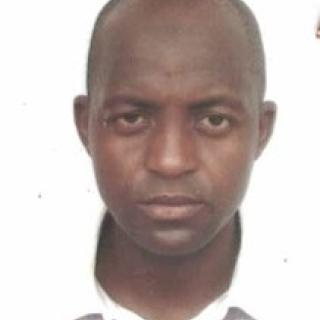Siradjou Mamadou was born in Bégoua, Central African Republic, on 18 December 1982. He completed his primary schooling at the Ecole primaire d’Haoussa de Bouar in 1997 and earned his high-school baccalaureate at the Lycée moderne de Bouar in 2004. He went on directly to the University of Bangui, where he graduated with a degree in private law, later adding a master’s in private law in 2010. By this time Siradjou had developed a strong social conscience, demonstrated by a growing concern for what he perceived to be the problems and injustices of society. His master’s thesis was on how prison sentences affected the ability of criminal offenders to return to the community; another research paper he wrote was on the Central African people’s social representation of albinos.
During his undergraduate and graduate studies, Siradjou participated in various conferences on issues such as combating poverty and the integration of vulnerable groups in Bangui. In 2006 he took part in a workshop run by UNICEF and the UN Development Programme to instruct parliamentarians on the rights and obligations of people living with HIV/AIDS. Siradjou’s native language was Sango, and he was fluent in French and proficient in English. Away from his studies, he enjoyed reading, playing football and watching movies.
In September 2010 Siradjou underwent two weeks of logistics training at the Central African Agency for Professional Training and Employment. In January the following year, he started work as a field agent for the Union for Agro-pastoral Development and Environmental Protection. He then moved to the ICRC, where he was first employed as an archivist (January to February 2012) and then as a warehouse employee (from May to August 2012).
In September 2012, Siradjou took up a new ICRC role as a supply chain assistant. His work consisted of receiving goods destined for ICRC subdelegations in other parts of the country and sending them onwards, loading lorries and running warehouse inventories. Given his sharp mind and eagerness to make a difference, Siradjou proved to be highly capable. He loved being part of a team, solving problems and shouldering responsibility. He also got on well with everyone.
First based in Bangui, Siradjou was later moved to the ICRC’s office in Ndélé when the security situation worsened in the capital. On 8 March 2014, Siradjou after he had tried to protect the health premises, he was chased and was killed by armed men who broke into the room he was renting in Ndélé at the city’s Catholic Mission. He was 31 years old.
Siradjou was known among his colleagues as a man of exemplary kindness who was committed to his work and driven to make the world a better place. His untimely death is a reminder of the many perils that humanitarian workers face on a daily basis.
